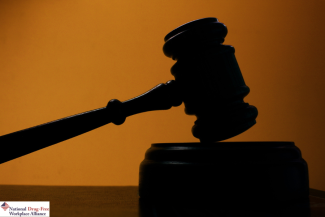Legal Doesn’t Mean Safe: Potential Changes to Marijuana Laws

As marijuana becomes more accessible across the U.S., it’s easy to assume that legality equals safety. But that assumption can put both individuals and workplaces at risk.
Whether you’re a small business owner trying to protect your team or an employee navigating changing laws, here’s the truth: legal doesn’t mean harmless.
With more than half of U.S. states allowing marijuana in some form, and ongoing federal discussions around reclassifying the drug to a lower-risk category, many people are wondering if this means marijuana is “officially safe.” The answer isn’t so simple.
Health experts and addiction researchers caution that the reclassification—or legalization—of marijuana does not erase its risks. In fact, the marijuana available today is much more potent than in decades past, and regular use is linked to a variety of health and safety concerns, including:
- Addiction: Around 30% of users may develop cannabis use disorder (CUD).1
- Impaired judgment and motor skills, increasing the risk of workplace accidents.
- Mental health issues, such as anxiety, depression, and in more and more cases, marijuana-induced psychosis.
- Cognitive impairment, especially harmful during adolescence and young adulthood.
- Decreased productivity and increased absenteeism in workplace settings.
Additionally, what many people don’t realize is how dramatically marijuana has evolved. The THC content (the chemical responsible for the “high”) has skyrocketed—by up to 20 times compared to marijuana from the 1960s–1980s.2 That higher potency means stronger effects, more intense impairment, and greater risk of dependence.
As a small business owner, it’s your job to keep your workplace safe and your team informed. That starts with clear policies, open communication, and a basic understanding of the facts:
- Marijuana may be legal in your state, but you can still set limits in your workplace, especially for safety-sensitive roles.
- Employees might be confused by changing laws or think rescheduling makes marijuana “safe”—education is key.
- Workplace drug testing policies may need updates to reflect new realities while maintaining your drug-free goals.
Dr. Deepak D’Souza, a psychiatrist and marijuana researcher at Yale, warns that the health effects of marijuana are still not fully understood. “We’ve done a very bad job of educating people,” he says, adding that many turn to celebrities instead of scientists for information.3
Legalization and regulation are evolving. But as an employer or employee, it’s crucial to separate policy from perception. Just because something is allowed doesn’t make it appropriate—or safe—for every situation.
At the end of the day, a safe, productive, and healthy work environment depends on informed choices. Let’s make sure everyone in your workplace has the facts to make them.
Citations:
- Hasin DS, Saha TD, Kerridge BT, et al. Prevalence of Marijuana Use Disorders in the United States Between 2001-2002 and 2012-2013. JAMA Psychiatry. 2015;72(12):1235–1242. doi:10.1001/jamapsychiatry.2015.1858
- Backman, I. (2023, August 30). Marijuana: Rising THC concentrations in cannabis can pose health risks. Yale School of Medicine. https://medicine.yale.edu/news-article/not-your-grandmothers-marijuana-rising-thc-concentrations-in-cannabis-can-pose-devastating-health-risks/
- Easing marijuana laws doesn’t mean the drug is safer. (n.d.). WebMD. https://www.webmd.com/mental-health/addiction/news/20240501/reclassification-of-marijuana-doesnt-mean-its-safer
Sources:
Easing marijuana laws doesn’t mean the drug is safer. (n.d.). WebMD. https://www.webmd.com/mental-health/addiction/news/20240501/reclassification-of-marijuana-doesnt-mean-its-safer